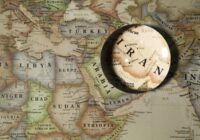With its fourth test of weapons of mass destruction, is North Korea running out of friends?
The news cycle around North Korea’s actions has become all too predictable. Its rocket launches and bomb tests tend to lead to a round of condemnation but little action from the usual voices. As of last week, the cycle repeated itself once more.
On January 6, the Hermit Kingdom announced it had detonated a hydrogen bomb, the fourth test since 2006. Although experts are skeptical that it was in fact a hydrogen bomb, a chorus of criticism from the United States, Japan, South Korea and China sounded out. The key players in the region each have reason for choosing words over action.
US President Barack Obama cannot divert from his policy of “strategic patience” without a real act of provocation. If the Kim dynasty was to be removed by force, it would not go down without South Korea suffering devastating retaliation. Seoul, the South Korean capital, is just 50 kilometers from the demilitarized zone that separates the two Koreas. While Obama is in charge, the US will continue to play the waiting game.
South Korea, for its part, has resumed propaganda in the shape of anti-Kim broadcasts and K-Pop through loudspeakers that can be heard 20 kilometers into North Korea. Yet while South Korea is committed in principle to reunification, many within the country fear the outcome of such a victory, other than the potential damage expressed above. Even if the Kim dynasty were to collapse from within, a huge refugee crisis and a bill for reunification that could cost over $500 billion would result.
China, the most crucial player, has stressed its commitment to a de-nuclearized Korean Peninsula. Most of North Korea’s food and money comes from China, and its ability to trade nuclear weaponry and secrets over the border could not be possible without a green light from the Chinese. While China is believed to have the most power over the rogue state, Pyongyang’s possession of nuclear weapons demonstrates how little influence Beijing really has.
Yet this is not to say that there will no implications for the region. While the tests are damaging for stability and peace in East Asia, they are also bringing enemies together in response.
Keep Your Friends Close, But Your Enemies Closer
South Korea and Japan will “forge a united and strong international response to North Korea’s latest reckless behavior.” Japanese Prime Minister Shinzo Abe told reporters: “We agreed that the provocative act by North Korea is unacceptable … We will deal with this situation in a firm manner through the cooperation with the United Nations Security Council.”
This is a remarkable statement given that South Korea and Japan have been reluctant allies since the end of World War II. It marked a further warming of relations between the East Asian nations, coming just over a week since the signing of a deal over the “comfort women” issue that had previously caused a huge strain in relations between the two countries.
Pyongyang can no longer rely on resentment between the key players in the region. The tests, whether real or not, show a North Korea running out of friends and options.
Although it might not mean much for Sino-Japanese relations, the nuclear crisis at least draws attention away from tensions over disputed islands in the South China Sea, which China calls the Diaoyu and Japan the Senaku. While Tokyo fears a rising Beijing, a nuclear-armed North Korea poses a more immediate threat. As a consequence of the Japanese annexation of Korea in 1910, Japan is the oldest enemy of the nationalist Kim dynasty.
There have even been calls for the US to cooperate closer with China over the North Korea issue. While it remains to be seen how China will respond, US Secretary of State John Kerry called for China to “end business as usual” with the rogue state.
Further afield, while Iran and North Korea are still partners, the nuclear deal struck between the P5+1 and Tehran in 2015 no doubt left North Korea feeling further isolated. Iranian officials were present during North Korea’s three previous nuclear tests—in 2006, 2009 and 2013, but not 2016. Furthermore, while Pyongyang’s desire for nuclear weapons is for survival, it also holds tests to market its missiles to the Middle East, as it has done for years. Now that Iran has given up its nuclear ambitions, North Korea has lost a loyal customer.
Indeed, perhaps it is this isolation from its partners in Iran and China that has led to North Korea continuing its quest to become a nuclear power as a means for survival as a state.
It would be near impossible for America to repeat the success of the Iran nuclear framework. Neither North Korea nor the US can be easily brought to the negotiating table. While Iran had sometimes been diplomatic in the past—for example, offering to help the US fight terrorism in the aftermath of 9/11—North Korea’s diplomacy has never been as sophisticated.
Pyongyang can no longer rely on resentment between the key players in the region. The tests, whether real or not, show a North Korea running out of friends and options.
The views expressed in this article are the author’s own and do not necessarily reflect Fair Observer’s editorial policy.
Photo Credit: Giordano Aita / Shutterstock.com
 We bring you perspectives from around the world. Help us to inform and educate. Your donation is tax-deductible. Join over 400 people to become a donor or you could choose to be a sponsor.
We bring you perspectives from around the world. Help us to inform and educate. Your donation is tax-deductible. Join over 400 people to become a donor or you could choose to be a sponsor.
Support Fair Observer
We rely on your support for our independence, diversity and quality.
For more than 10 years, Fair Observer has been free, fair and independent. No billionaire owns us, no advertisers control us. We are a reader-supported nonprofit. Unlike many other publications, we keep our content free for readers regardless of where they live or whether they can afford to pay. We have no paywalls and no ads.
In the post-truth era of fake news, echo chambers and filter bubbles, we publish a plurality of perspectives from around the world. Anyone can publish with us, but everyone goes through a rigorous editorial process. So, you get fact-checked, well-reasoned content instead of noise.
We publish 2,500+ voices from 90+ countries. We also conduct education and training programs
on subjects ranging from digital media and journalism to writing and critical thinking. This
doesn’t come cheap. Servers, editors, trainers and web developers cost
money.
Please consider supporting us on a regular basis as a recurring donor or a
sustaining member.
Will you support FO’s journalism?
We rely on your support for our independence, diversity and quality.






